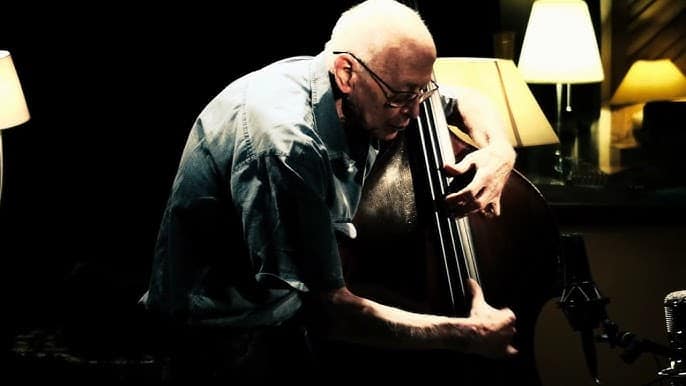Gyorgy Ligeti interferes with Christmas shopping
main

Bavarian Radio is claiming him as a local…

The orchestra has cancelled concerts until after the…

The autograph manuscript of the fourth movement of…

The US jazz bassist Barre Phillips, resident in…

Session expired
Please log in again. The login page will open in a new tab. After logging in you can close it and return to this page.
Brilliant….. and how appropiate to use modernism to express isolation, alienation, devastatying loneliness.
How about using yours to express mediocrity, jealousy and tediousness?
Seriously, aren’t you tired of always repeating the same thing over and over and over? Don’t you get it: no one cares. We know you don’t like any 20th century music beside your own. Can’t you move on now?
Or at least, say something original for a change?
Yes, I know, it’s all very difficult isn’t it? But this has shown to be very effective in calming such anxieties:
https://www.youtube.com/watch?v=mbBOoZYHN4M
(a) Note that the music doesn’t change when his human connection to the girl gives him some joy. Are you sure the soundtrack is expressing the feelings you enumerate (or only those), and not simple mystery?
(b) Note that they chose one of the more rebarbative passages from Ligeti, whose music also abounds in simply gorgeous passages.
Also true.
Mr. Borstlap, it is very possible that even for Schubert the idea that he states a theme in a minor key and then, in close contiguity, in its parallel major- which some might infer as moving from darkness to joy- was simply just that: the use of the parallel major. So the Rosamunde Quartet starts in ‘a minor’ and suddenly we hear a rough variation in ‘A major’. Do we really know that Schubert felt this was like moving from clouds to sun? It is unlikely. He wrote so quickly that the plausible (partly cloudy) reason is that he was seeking a contrast by stating a melody (with the same contours as the original minor key theme) in a major key. The point is: how do we know if Ligeti was expressing the things you cite? Does it say so in the music’s score? What you have read into the music is not verifiable. Open ears, eyes, and mind: there may not be —— everywhere!
What a sentiment in the advert. Do many of us not empathize with that man on the moon, and his distance from the seeming reality? Being on the moon highlights the fantastical and implausible aspects of his separation, calling in to question the reality of what truly keeps us removed.
Ligeti’s existential, entropic query certainly fits. Well done.
Maybe he’s just sad that she doesn’t have the same peace and serenity that he has.